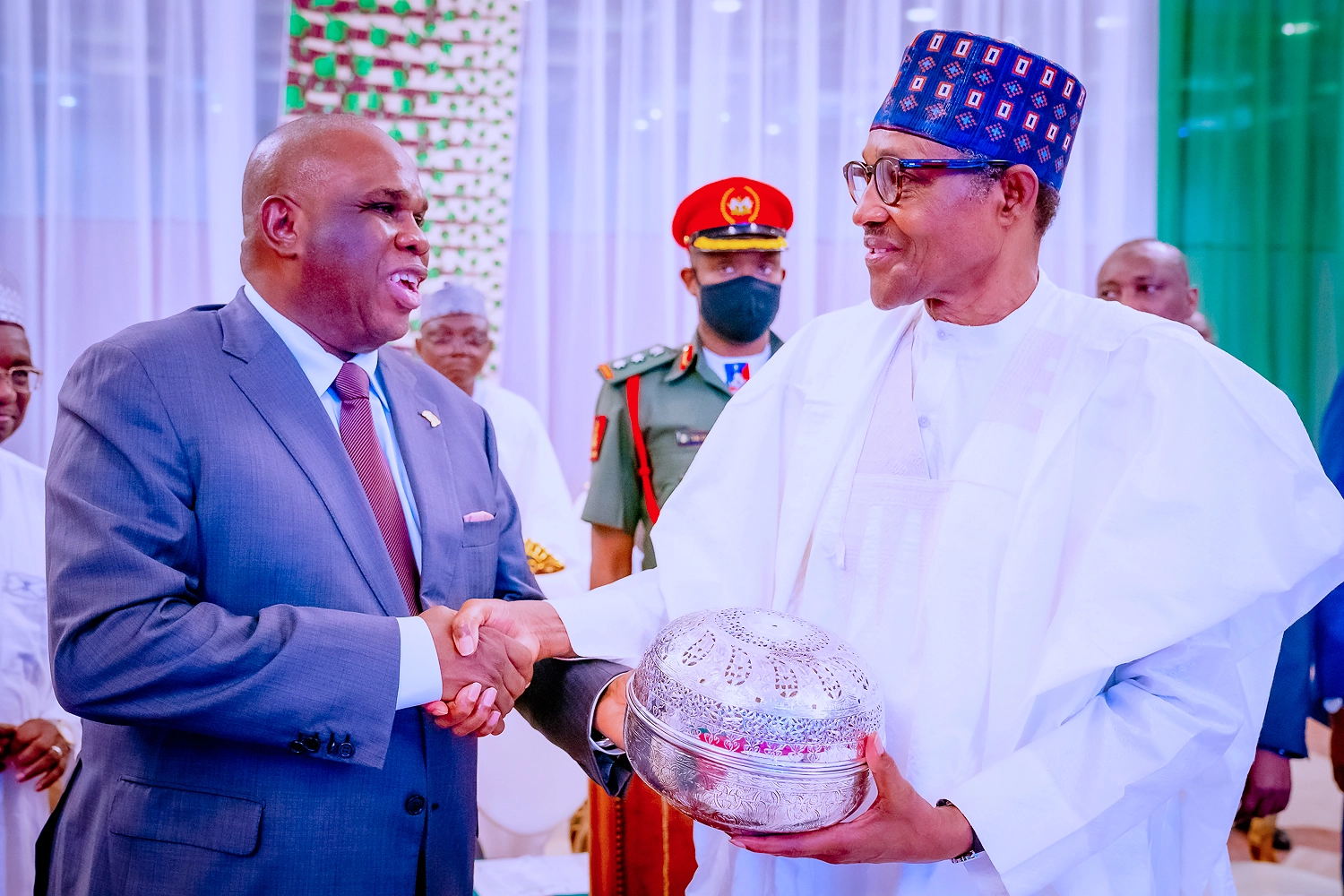The President of Nigeria, Muhammadu Buhari has asserted that the African Continental Free Trade Area (AfCFTA) will succeed if African governments demonstrate a higher level of commitment to tackle the slow pace of physical integration, political cooperation, and tariff barriers that inhibit business integration.
The President in a statement by his media aide, Femi Adesina decried the low-level trade among African countries while addressing the second African Sub-Sovereign Governments Network (AFSNET) Conference on Friday in Abuja, organised by the Afreximbank in collaboration with the secretariat of AfCFTA and the Nigeria Governors’ Forum,
‘As leaders, we must all be concerned that we are not trading enough amongst ourselves. It is a bitter reality that Intra-regional trade still accounts for a very tiny fraction of total trade in Africa.
‘We have to understand that if this new drive towards a continental free trade area is to succeed, we must demonstrate a higher level of commitment to tackle the slow pace of physical integration due to geographic and political fragmentations, the pace of political cooperation, and difficult tariff and non- tariff barriers that inhibit business integration.
Read Also: AfCFTA: Osinbajo Lists Dangers, Benefits Of Africa Free Trade
‘I am firmly convinced that with the right collaborative action, we will be able to record a much stronger pace of transformation.
‘Through shared knowledge, innovation and creativity, we will be better able to cater for the needs of the African continent’s population of over 1.4 billion people,’’ the President said, urging the Conference to use the network and support provided by pan-African institutions as a platform for the exchange of ideas, knowledge and skills.’
The conference, he said, should also seek and advance innovative solutions to support our common quest for the expansion of intra-Africa trade opportunities for the people.
The Nigerian leader commended the organizers of the conference for demonstrating innovative thinking by taking the AfCFTA to the grassroots, lauding the President of Afreximbank, Prof. Benedict Oramah, and his team for committing US$250 million as seed capital towards the establishment of the AFSNET.
He acknowledged that the initiative spearheaded by Afreximbank was aimed at firmly establishing and deepening intra-continental trade investment development frontier for Africa, facilitating the reduction in the continent’s dependence on exports of primary commodities as well as minimizing the risks experienced due to strong reliance on global value chains.

